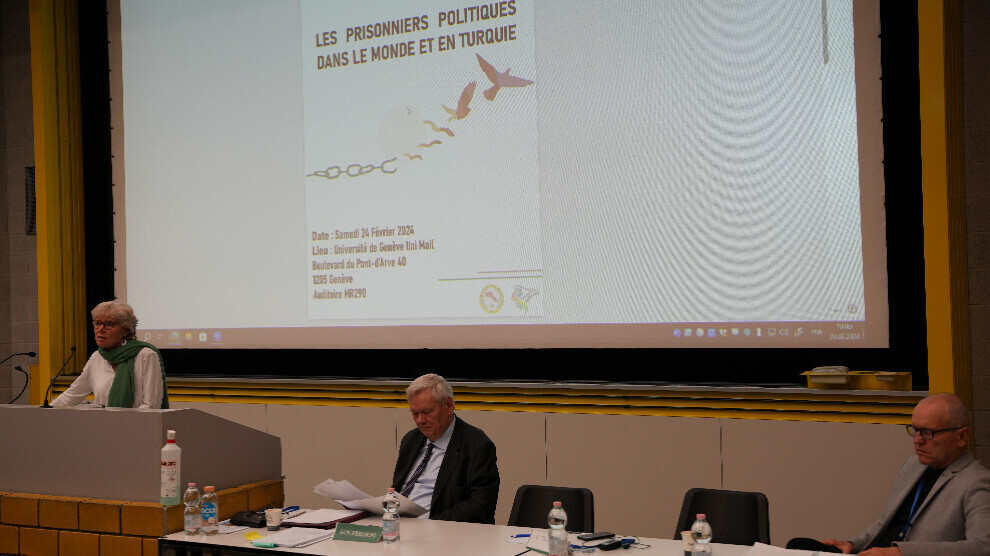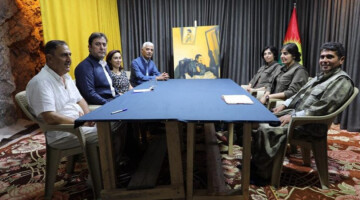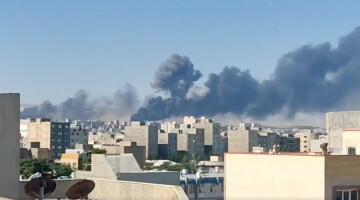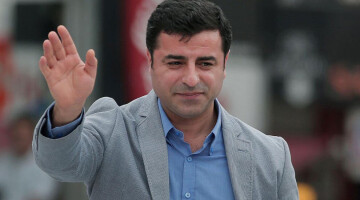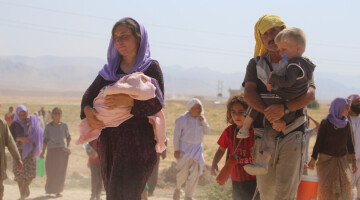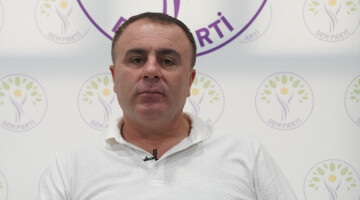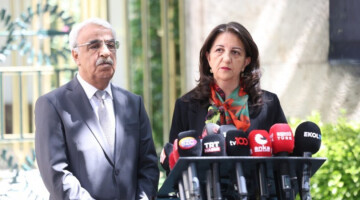A conference titled "Political Prisoners in the World and in Turkey" is taking place in Geneva, Switzerland as part of the "Freedom for Abdullah Öcalan and a political solution to the Kurdish question" campaign that was launched globally on October 10. The conference is being held at the Uni Mail campus of the University of Geneva with the participation of experts as speakers. Helin Sağlam, a member of the Geneva University Kurdish Student Association (ADEK), made the opening speech of the conference, which will include three sessions with panels under different titles.
Helin Sağlam stated that the conference was organized to discuss the situation of political prisoners, which is one of the most important problems of our time. Sağlam wished that the conference would lead to law and justice and talked about the difficulties faced by political prisoners in Turkey.
Following the opening speech, the first session of the conference included a panel discussion on "Why prisons were built and what they mean for political prisoners", " Construction of prisons for dissidents" and "Political prisoners around the world". The panel was moderated by Swiss human rights defender Elisabeth Decrey Warner and included presentations by Jean-Pierre Restellini, a former member of the European Committee for the Prevention of Torture (CPT) who visited İmralı prison three times on different dates, and Jan Fermon, a lawyer from the Brussels Bar Association.
Decrey Warner: Everyone can do something for the freedom of Abdullah Öcalan
Elisabeth Decrey Warner, a Swiss human rights defender, took the floor first and said: "UThe experiences of Mandela are talked about for the most part, while we rarely hear about Abdullah Öcalan. This is a fact.”
Elisabeth Decrey Warner said that the totalitarian and weak regime in Turkey targeted Abdullah Öcalan and that there is something everyone can do for the conditions and freedom of the Kurdish leader. Warner pointed out that pressure should not only be put on the Turkish government due to the conditions in which Abdullah Öcalan is in, but also on European governments that need Turkey economically and maintain relations with it.
CPT member Restelli̇ni̇: 80 percent of political prisoners are victims of violence
Jean-Pierre Restellini, forensic medicine expert and lawyer, former member of the CPT, started his speech by recalling his visits to prisons in Turkey and emphasized why prisons are built and what they mean for political prisoners. Restellini said that he witnessed the period of hunger strikes and death fasts in Turkish prisons and emphasized that the government's attitude towards prisoners at that time was very harsh. Restellini stated that more than 80 percent of political prisoners around the world are subjected to violence by the official authority, and noted that this was the case in Turkish prisons as well. Restellini underlined that political prisoners are generally discriminated against in prisons.
Jan Fermon: Kurdish political prisoners are prisoners of war
Jan Fermon, a lawyer from the Brussels Bar Association, made a presentation. Stating that the main purpose of constructing prisons is to protect the existing laws, Fermon drew attention to the situation of political prisoners around the world. He stated that a large number of people who think differently in different parts of the world end up in prison, and most of them are victims of state violence.
Remarking that there is no common definition of political prisoners, Farmon said, "In general terms, political prisoners are defined as those who think differently and fight against the existing authority."
Stating that political prisoners continue to organize in prisons despite the harsh conditions, Jan Fermon said, "We see the best example of this in Turkish prisons. Despite the harsh conditions of F Type prisons, political prisoners are able to organize."
Drawing special attention to the situation of Kurdish political prisoners, lawyer Fermon said that although Turkey tries these people under terrorism laws, in fact the majority of these prisoners are prisoners of war.
The conference continues with speeches.

